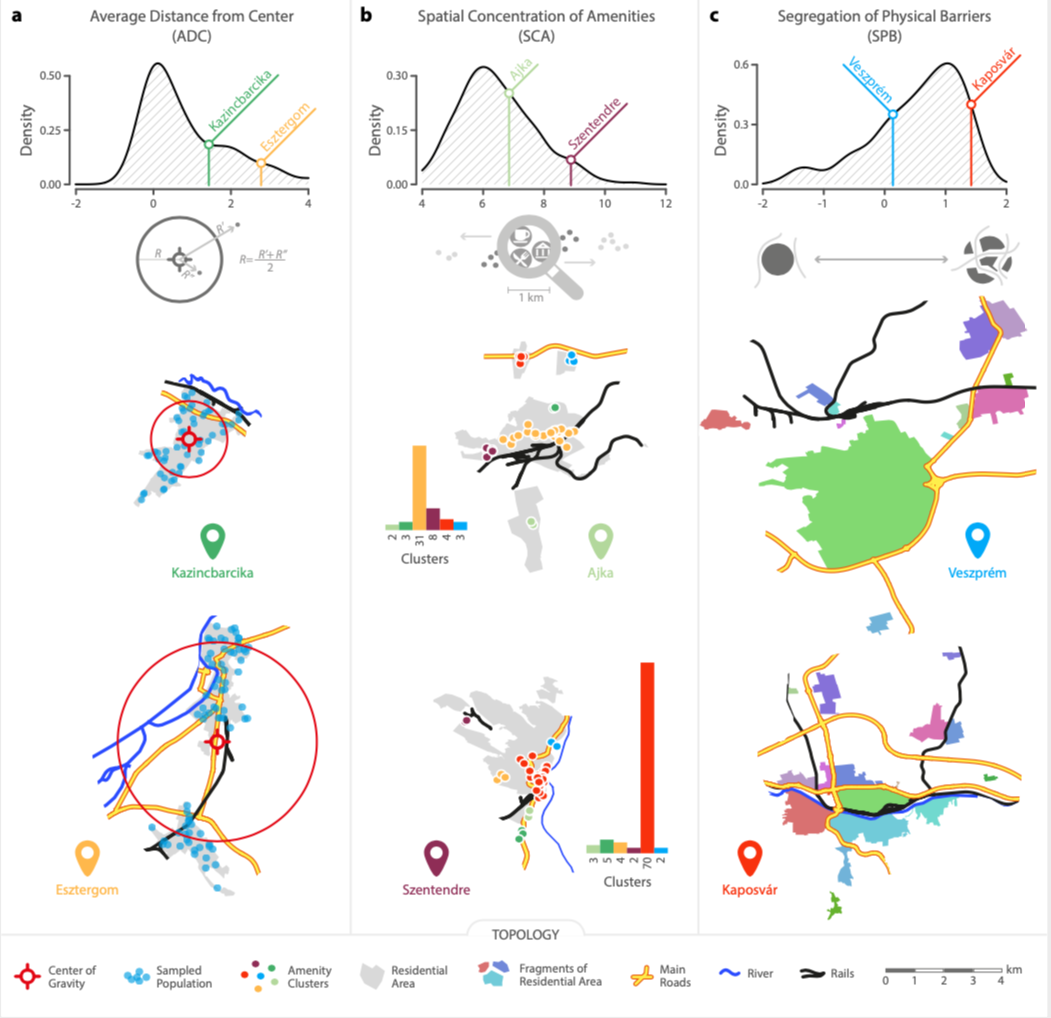Inequality is rising where social network segregation interacts with urban topology

Wealth is unequally distributed in urban areas, often leading to the segregation of individuals into neighborhoods with disparate access to education, healthcare, and the labor market. In this paper, we provide empirical evidence based on big data that the structure of large-scale social networks correlates with income inequality in towns. We demonstrate that inequalities tend to grow larger when initial income disparities coincide with fragmented social networks. Seeking a better understanding of the relationship between fragmentation of social networks and inequality in towns we find a strong correlation between divisive urban structure and social segregation. This relationship suggests that the vicious cycle of network effects on inequalities could be combated by designing better cities.
Social networks amplify inequalities due to fundamental mechanisms of social tie formation such as homophily and triadic closure. These forces sharpen social segregation reflected in network fragmentation. Yet, little is known about what structural factors facilitate fragmentation. In this paper, we use big data from a widely-used online social network to demonstrate that there is a significant relationship between social network fragmentation and income inequality in cities and towns. We find that the organization of the physical urban space has a stronger relationship with fragmentation than unequal access to education, political segregation, or the presence of ethnic and religious minorities. Fragmentation of social networks is significantly higher in towns in which residential neighborhoods are divided by physical barriers such as rivers and railroads and are relatively distant from the center of town. Towns in which amenities are spatially concentrated are also typically more socially segregated. These relationships suggest how urban planning may be a useful point of intervention to mitigate inequalities in the long run.